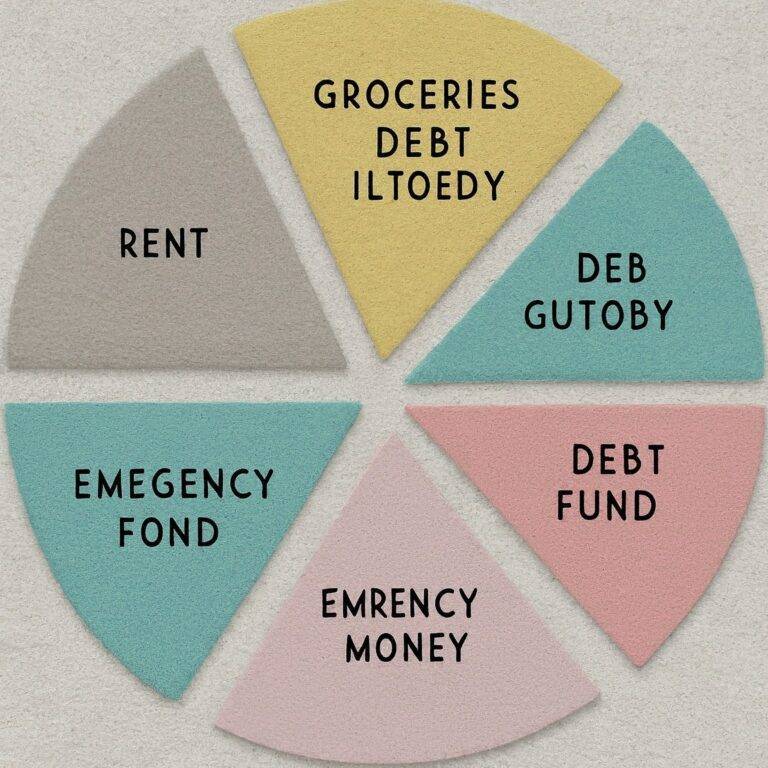Table of Contents
Groceries are a significant expense for most households, but with rising food costs, saving money on groceries has become even more crucial. Luckily, there are plenty of clever strategies and savvy shopping hacks you can employ to drastically cut your grocery bill without compromising on the quality or taste of your food.

1. Master the Art of Meal Planning (and Saving Money on Groceries!)
Meal planning is the foundation upon which your grocery-saving success is built. It’s more than just deciding what you’ll eat for dinner; it’s a strategic approach that empowers you to take control of your grocery budget.
Why Meal Planning Works Wonders When Saving Money on Groceries:
- Prevents Impulse Buys: Ever wandered the aisles aimlessly, tossing items into your cart without a plan? Meal planning eliminates this costly habit. With a predetermined menu, you’ll only buy what you need.
- Reduces Food Waste: When you know what you’re going to cook, you’re less likely to buy ingredients that end up languishing in your fridge. This means less food waste and more money in your pocket.
- Takes Advantage of Sales: By planning ahead, you can build your meals around items that are on sale, saving you money on ingredients you were already planning to buy.
- Saves Time: No more last-minute scrambles to figure out what to cook. With a meal plan, you already know what’s for dinner, eliminating stress and making meal prep more efficient.
How to Meal Plan Like a Pro:
- Assess Your Needs: Consider your family’s dietary preferences, any upcoming events, and how many meals you’ll be eating at home.
- Check Your Pantry: Take inventory of what you already have on hand to avoid repurchasing items you don’t need.
- Seek Inspiration: Look for recipes online, in cookbooks, or from friends and family. Pinterest and recipe websites are great resources for finding delicious and affordable meal ideas.
- Create a Weekly Menu: Map out your breakfasts, lunches, and dinners for the week. Be sure to account for leftovers, which can easily become another meal.
- Make a Detailed Shopping List: Break down your recipes into their individual ingredients and create a comprehensive list. Organize your list by grocery store section to make shopping more efficient.
- Stick to Your List (No Matter What!): This is crucial. Resist the urge to buy items that aren’t on your list, no matter how tempting they may seem.
Pro Tip: Involve your family in the meal planning process. Ask for their input on meals and snacks, and consider assigning them tasks like checking the pantry or helping with the shopping list. This can make meal planning more enjoyable and ensure everyone’s preferences are considered.
2. Become a Savvy Shopper: Hunt for Bargains and Sales
The grocery store can feel like a battlefield, with countless products vying for your attention (and your wallet). But with a little preparation and a keen eye for deals, you can emerge victorious, armed with a cart full of savings.
The Pre-Shopping Game Plan:
- Flyer Frenzy: Your local supermarkets’ weekly flyer is a treasure trove of potential savings. Scour it for discounts on items you regularly buy. Many stores also offer digital flyers or apps that make it even easier to find deals.
- Online Deal Diving: Most supermarkets have websites or apps where they showcase their weekly specials. Take a few minutes to browse these online resources to see if there are any additional deals not listed in the flyer.
- Price Comparison Pro: Don’t just grab the first product you see. Compare prices between different brands and sizes. Pay attention to the unit price (the price per ounce, pound, etc.) to determine the best value.
- Loyalty Program Perks: If your favorite grocery store has a loyalty program, sign up! These programs often offer exclusive discounts, personalized coupons, and rewards for your purchases.
The Bulk Buying Balancing Act:
Buying in bulk can be a fantastic way to saving money on groceries, but it’s not always the right move. Here’s how to decide if bulk buying is right for you:
- Storage Space: Do you have enough room to store bulk items? Consider your pantry and freezer space before investing in large quantities.
- Consumption Rate: How quickly do you go through the item? If you use it frequently, bulk buying could be a good option. If not, it might go to waste.
- Shelf Life: Some items have a long shelf life (like pasta or canned goods), while others perish quickly (like fresh produce). Choose bulk items that you can realistically consume before they expire.
- Cost Savings: Calculate the unit price of the bulk item and compare it to the regular-sized option. Is the bulk purchase actually saving you money?
In-Store Strategies:
- Shop the Perimeter: Fresh produce, meat, dairy, and eggs are typically located on the perimeter of the store. Focus on these areas to prioritize whole, unprocessed foods.
- Eye Level Isn’t Always Best: Stores often place the most expensive items at eye level. Don’t be afraid to look on the top or bottom shelves for more affordable options.
- Beware of Endcap Traps: Endcap’s (the displays at the ends of aisles) can be tempting, but they often feature items that aren’t on sale. Stick to your list to avoid impulse buys.
- Check for “Manager’s Specials” or Clearance Items: Many stores have a section for discounted items that are close to their expiration date or slightly damaged. These can be great deals if you plan to use them right away.
3. Give Generic Brands a Chance
Store-brand or generic products are often just as good as their name-brand counterparts but at a much lower price. Experiment with generic options for staples like pasta, rice, canned goods, and spices. You might be pleasantly surprised by the quality and the money you save.
Harnessing the power of coupons and loyalty programs is a savvy shopper’s secret to saving money on groceries. These often-underestimated tools offer a wealth of discounts, rewards, and exclusive perks that can significantly reduce your grocery bill.
Couponing: Your Ticket to Instant Savings
Gone are the days of laboriously clipping coupons from newspapers. Today, digital couponing offers a convenient and efficient way to saving money on groceries:

- Digital Coupon Apps: Many grocery stores have apps with digital coupons you can easily “clip” to your account. These coupons are automatically applied at checkout, making saving money on groceries a breeze.
- Online Coupon Websites: Websites like Groupon, RetailMeNot, and Coupons.com aggregate grocery coupons from various retailers. Print them out or use them digitally to save money on groceries.
- Manufacturer Websites: Check the websites of your favorite brands for coupons. Many offer discounts directly to consumers, allowing you to save money on groceries while still enjoying your preferred products.
Loyalty Programs: Earn Rewards as You Save Money on Groceries
Loyalty programs are a fantastic way to earn rewards while you shop. By signing up, you’ll accumulate points or rewards with each purchase, which can then be redeemed for discounts or free items, further boosting your efforts to save money on groceries.
- Personalized Offers: Many loyalty programs offer personalized deals tailored to your shopping habits. This means you’ll receive coupons for products you frequently buy, helping you save money on groceries you were already planning to purchase.
- Exclusive Discounts: Some programs offer members-only discounts on specific items or categories, providing even more opportunities to save money on groceries.
- Bonus Point Events: Look out for special promotions where you can earn bonus points, further accelerating your savings on groceries.
- Tiered Rewards: Many programs offer tiered rewards. As you accumulate points, you’ll unlock additional benefits, such as free delivery or exclusive discounts, allowing you to save money on groceries in multiple ways.
By incorporating couponing and loyalty programs into your grocery shopping routine, you’ll discover a whole new world of savings. With a little effort, these tools can become your secret weapons in the quest to save money on groceries without compromising on quality or variety.
5. Seasonal Savings: Eat What’s in Season
Fruits and vegetables that are in season are not only more flavorful but also more affordable. Research what’s in season in your area and build your meal plan around those items. Frozen fruits and vegetables can also be a cost-effective option, especially when fresh produce is out of season or expensive.
6. Cook Like a Pro (At Home!)
Eating out or ordering takeout can quickly sabotage your budget. Cooking at home gives you control over ingredients, portion sizes, and ultimately, your expenses. Make cooking a fun family activity or a relaxing solo endeavour by trying new recipes or revisiting old favourites.
7. Wage War on Food Waste: The Ultimate Strategy to Save Money on Groceries
Did you know that the average household throws away a shocking amount of food every year? This translates to wasted money and a significant environmental impact. By tackling food waste head-on, you can not only save money on groceries but also contribute to a more sustainable future.
How to Win the War on Food Waste (and Save Money on Groceries):
- Shop Smart: Plan your meals and buy only what you need. Avoid impulse purchases and stick to your shopping list.
- Proper Storage: Learn how to store different types of food correctly to maximize their shelf life. Invest in airtight containers, reusable wraps, and produce bags to keep your food fresher for longer.
- FIFO (First In, First Out): When stocking your fridge and pantry, place older items at the front and newer items at the back. This ensures you use up older items before they expire.
- Freeze Leftovers: Don’t let leftovers go to waste. Freeze them in individual portions for quick and easy meals later.
- Get Creative with Ingredients: Before throwing away wilting vegetables or aging fruit, try incorporating them into soups, smoothies, or baked goods.
- Compost: If you have a garden, composting food scraps is a great way to reduce waste and create nutrient-rich soil.
- Understand Expiration Dates: “Best buy,” “sell by,” and “use by” dates can be confusing. Learn the difference between these labels to avoid throwing away food that is still perfectly safe to eat.
- Portion Control: Serve smaller portions to avoid leftovers. You can always go back for seconds if you’re still hungry.
- Track Your Waste: Keep a record of the food you throw away to identify patterns and adjust your shopping and cooking habits accordingly.
By taking these steps to reduce food waste, you’ll be surprised at how much money you can save on groceries. It’s a win-win situation for your wallet and the planet.
8. Shop on a Full Stomach (Always!)
Never go grocery shopping when you’re hungry. Hunger can lead to impulsive decisions and unhealthy choices. Have a snack or a small meal before heading to the store to avoid temptations and stick to your shopping list.
9. Strategic Shopping: Less Trips, More Savings
Limit your trips to the grocery store. The more often you go, the more likely you are to make unplanned purchases. Plan your trips in advance and stock up on essentials to avoid those last-minute runs that often result in overspending.
10. Don’t Be Shy: Haggle for Discounts
If you spot a damaged item or a product nearing its expiration date, don’t hesitate to ask for a discount. Many stores are willing to negotiate, especially if it means avoiding waste.
Why Food Waste is Public Enemy #1 for Your Wallet (and the Planet): A Shopper’s Guide to Saving Money on Groceries
When it comes to saving money on groceries, most people focus on coupons, sales, and bulk buying. But there’s a silent budget killer lurking in your kitchen: food waste.
Your Hard-Earned Money in the Trash (Literally)

Every time you toss out spoiled produce, forgotten leftovers, or expired ingredients, you’re essentially throwing money directly into the trash. Think about it – that wilting head of lettuce or moldy block of cheese represents cash that could have been spent on other essentials, a fun outing, or even saved for a rainy day.
The Environmental Cost of Food Waste
Food waste isn’t just a financial burden; it’s an environmental disaster. When food rots in landfills, it releases methane, a potent greenhouse gas that contributes to climate change. Additionally, the resources used to produce, transport, and package that wasted food – water, energy, and fuel – are also squandered.
How to Wage War on Food Waste (and Save Money on Groceries):
- Master the Meal Plan: Plan your meals for the week and create a detailed shopping list to avoid overbuying.
- Storage Savvy: Invest in airtight containers, reusable wraps, and produce bags to keep your food fresher for longer.
- First In, First Out (FIFO): Organize your fridge and pantry so that older items are used first.
- Freeze Your Bounty: Portion out leftovers and freeze them for future meals.
- Get Creative in the Kitchen: Turn wilting veggies and aging fruit into soups, smoothies, or baked goods.
- Compost It: If you have a garden, composting food scraps is a great way to reduce waste and nourish your soil.
- Decode Dates: Understand the difference between “best by,” “sell by,” and “use by” dates. Many foods are still safe to eat after these dates.
- Mindful Portions: Serve smaller portions to avoid leftovers, and encourage everyone to take only what they’ll eat.
By taking these steps, you’ll not only save money on groceries but also help reduce your environmental impact. Remember, every bit of food saved is a victory for your wallet and the planet.
The Bottom Line:
By implementing these practical tips and tricks, you can take control of your grocery expenses without sacrificing the joy of eating delicious and nutritious food. Remember, saving money on groceries is a marathon, not a sprint. Small changes can add up to big savings over time.






